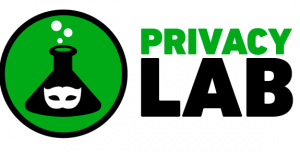Home
Use our global calendar of privacy events to locate an event near you.
FILTER BY
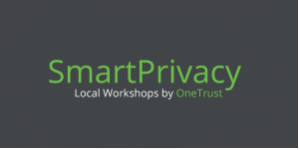
SmartPrivacy is a practitioner-focused, half day local workshop where privacy professionals can learn from each other about tools and best practices to operationalize their privacy programs.
The workshop is hosted by OneTrust, however, is open to any privacy professional regardless of tool or template of choice.
A combination or structured educational sessions, peer-lead discussions, and networking allow organizations to share practical tips on topics such as GDPR compliance, how to perform a data inventory, identifying the key stakeholders/privacy champions within your organization, and how to get buy-in from executives.
Attendees can expect to receive 4.5 CPE credit hours, the ultimate PIA/DPIA, Data Inventory & Mapping, and Data Subject Rights Handbooks, access to free software tools, how-to guides, and best practices documents on the topics covered.
Workshop Agenda:
• 11:30am – Lunch & Registration
• 12:00pm – Welcome & Introductions
• 12:30pm – PIA & DPIA Workshop
• 2:15pm – Data Mapping Workshop
• 3:30pm – Data Subject Rights Workshop
• 4:00pm – OneTrust Demo
• 4:30pm – Networking & Cocktails
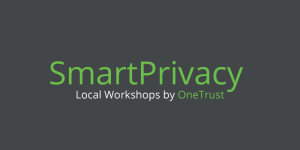
SmartPrivacy is a practitioner-focused, half day local workshop where privacy professionals can learn from each other about tools and best practices to operationalize their privacy programs.
The workshop is hosted by OneTrust, however, is open to any privacy professional regardless of tool or template of choice.
A combination or structured educational sessions, peer-led discussions, and networking allow organizations to share practical tips on topics such as GDPR compliance, how to perform a data inventory, identifying the key stakeholders/privacy champions within your organization, and how to get buy-in from executives.
Attendees can expect to receive 4.5 CPE credit hours, the ultimate PIA/DPIA, Data Inventory & Mapping, and Data Subject Rights Handbooks, access to free software tools, how-to guides, and best practices documents on the topics covered.
Workshop Agenda:
• 11:30am Lunch & Registration
• 12:00pm Welcome & Introductions
• 12:30pm PIA & DPIA Workshop
• 2:15pm Data Mapping Workshop
• 3:30pm Data Subject Rights Workshop
• 4:00pm OneTrust Demo
• 4:30pm Networking & Cocktails
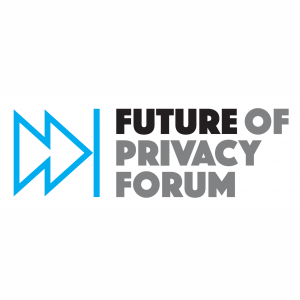
The FPF-Capital Area Academic Network invites you to join us for a roundtable discussion featuring Mary Madden (Researcher, Data & Society Institute) and Michele Gilman (Venable Professor of Law and Director of Clinical Education, University of Baltimore School of Law). Mary and Michele will discuss their latest research: “Privacy, Poverty and Big Data: A Matrix of Vulnerabilities for Poor Americans”
From 3:00 – 4:00pm, Mary and Michele will share their research with us and engage in a discussion about their findings. An opportunity to network with the authors and fellow attendees will follow the discussion from 4:00 – 5:00pm. Please R.S.V.P. to reserve your seat — space is limited.
We look forward to seeing you on October 25th!
Can’t join us in person? Join us virtually using the following Zoom link:
About the Research:
This Article examines the matrix of vulnerabilities that low-income people face as a result of the collection and aggregation of big data and the application of predictive analytics. It reports on original empirical findings from a large, nationally-representative telephone survey with an oversample of low-income American adults, and highlights how these patterns make particular groups of low-status Internet users uniquely vulnerable to various forms of surveillance and networked privacy-related problems. In particular, a greater reliance on mobile connectivity, combined with lower usage of privacy-enhancing strategies, may contribute to various privacy and security-related harms. The Article then discusses three scenarios in which big data—including data gathered from social media inputs—is being aggregated to make predictions about individual behavior: employment screening, access to higher education, and predictive policing. As policymakers consider reforms, the Article urges greater attention to impacts on low-income persons and communities.
About the presenters:
Mary Madden is a veteran technology researcher, writer and public speaker, having studied trends in American internet users’ behaviors and attitudes for more than a decade. She is currently leading a Data & Society initiative to understand the privacy and security experiences of low-socioeconomic status populations. Supported by a grant from the Digital Trust Foundation, the project will provide freely accessible survey data to researchers working in this area and will seek to answer key questions that can help ground current policy conversations and debates about privacy and security in the digital age.
Mary is also an Affiliate at the Berkman Center for Internet and Society at Harvard University where she has collaborated with the Berkman Center’s Youth and Media Project to apply quantitative and qualitative research methods to study adolescents’ technology use and privacy management on social media. Prior to her role at Data & Society, Mary was a Senior Researcher for the Pew Research Center’s Internet & American Life Project. She is a nationally recognized expert on privacy and technology, trends in social media use, and the impact of digital media on teens and parents. Mary is also a member of the National Cyber Security Coalition’s Data Privacy Day Advisory Committee and the Research Advisory Committee for the Future of Music Coalition’s Artist Revenue Streams Project.
Michele Gilman is the Venable Professor of Law and Director of Clinical Education at the University of Baltimore School of Law. Professor Gilman teaches in the Civil Advocacy Clinic, where she supervises students representing low-income individuals and community groups in a wide range of litigation, legislation, and law reform matters. She also teaches evidence, federal administrative law, and poverty law. Professor Gilman writes extensively about privacy, poverty, and social welfare issues, and her articles have appeared in journals including the California Law Review, the Vanderbilt Law Review, and the Washington University Law Review. She is a co-director of the Center on Applied Feminism, which works to apply the insights of feminist legal theory to legal practice and policy. She received her B.A. from Duke University, and her J.D. from the University of Michigan Law School.
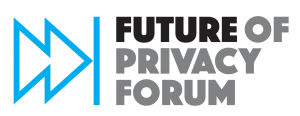
The 3rd Annual FPF Tech Lab Open House is an opportunity for us to welcome our members, friends, and colleagues in town for the IAPP Global Privacy Summit. Hosted at our home office in Washington, DC, this event provides a rare occasion for policymakers, regulators, and thought leaders to interact with the latest in privacy-impacting gadgets and new technologies.
Join us on Tuesday, March 26th, 2018 from 5:30 -7:30pm at the FPF Office and check out the latest in tech:
– Play with Smart Toys: CognitToys Dino, ChiP Robot, and more
– Outsmart our Smart Home gadgets
– Learn how Wi-Fi and Proximity Sensors can be used to track smartphones in our space
– Come face to face with facial recognition
– Experience virtual reality
– Share fun moments with Snap Spectacles
– And more!
Plus, network with locals and out-of-towners, engage in lively discussions about privacy, all while enjoying drinks and hors d’oeuvres.
Doors open at 5:30 pm; a short program begins at 6:00 pm with remarks from special visiting guests.
By invitation only. Please contact [email protected] for more information.

The DFG Research Training Group 1681/2 “privacy and digitization” pursues the question,
which forms privacy can take in a digital society and the opportunities
and risks are to visualize it. The consequences for citizens,
Politics and economics are explored in the context of cultural and legal orders.
On digital media offerings include partially unprecedented cultural or altered
Media usage practices to which the border crossings with respect to conventional
Privacy standards are to be considered. The increased penetration of analog and digital
Realities often if it is considered an increasing fusion of private and
Public. Thus media cultural and ethical questions arise after the
standing behind the various applications and maxims
Scaling patterns and the need for analysis, classification and evaluation of
hereby enabled usage scenarios.
In the jurisprudence forms the review of data-based business models and
technical innovations which frequently also have extended access data
accompanied, a key challenge. Employs an internationally led discussion
whether there may be civil law ownership of data with the question. Generally, it applies in
As regards the major, global Internet services from Google, Facebook and Co.
both requirements of the public service data protection law as well as binding to
private agreements considered. The lack of transparency and complexity of the underlying
supporting technical relationships complicate not only the legal right
but throw overlooking users also questions the capacity to consent within the meaning of
Data protection legislation.
The ‘traditional’ media art, literature, film, etc. forming reflection instances this
societal and individual challenges. In them a cultural done
Self-understanding about in a society at a particular historical moment
Applicable as appropriate, for example, to the question of what and what not under what
Circumstances can be regarded as violation of privacy and is sanctioned accordingly.
Social as well as individual applications practices of digital media as well as the reflection
these processes are therefore based on character-based, media communication.
From this perspective also new opportunities offered under the technological development
to establish media literacy and to make abstract contexts understandable.
The meeting itself would the recalled here problems from an interdisciplinary
Approaching perspective, taking account both intellectual, cultural, social and media studies
Perspectives and secondly jurisprudential perspectives in focus.
The use of computing with cultural studies / legal issue are
also welcome.
Information on the organization and conduct
Organised by the DFG Research Training Group 1681/2 “privacy and digitization ‘Meeting
is from 26 to 28th October 2017 held at the University of Passau.
Your abstract (incl. Vortragstitel) with a circumference of max. 300 words and a
Curriculum vitae (scientific career, publications), please send as PDF to
to 30.04.2017 via e-mail (subject: digitality and privacy) to:
[email protected] and [email protected]
The notification of acceptance of the contributions is end of May.
The presentations have a length of 30 minutes. A publication of the contributions is planned.
As part of the conference program there will also be a panel with short presentations, the
particularly aimed at young scientists / inside at an early research phase
and this is to give the opportunity to introduce planned promotion projects. at
thematic and professional competence is a possibility in the doctoral program of
Research Training (TVL 13, 75%, as of April 2018) to be received. applications for
a 10-minute presentation on the young panel we ask according to
mark.
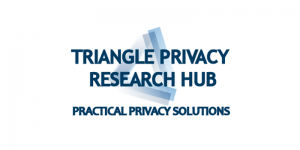
Agenda:
Thursday, October 26 – Sponsored by the North Carolina Journal of Law & Technology (NC JOLT)
Location: Rizzo Center: 150 Dubose Home Lane, Chapel Hill, NC
1:00 p.m. Keynote Remarks
1:45 p.m. – 5:00 p.m. Panel Discussions with Audience Q&A
Friday, October 27
Location: Duke Innovation & Entrepreneurship Initiative at The Bullpen: 215 Morris St #300, Durham, NC
9:00 a.m. Keynote Remarks
9:45 a.m. – 1:00 p.m. Panel Discussions with Audience Q&A
Lunch will be provided following the program
Please note this event is invitation only. For more information, please contact [email protected].
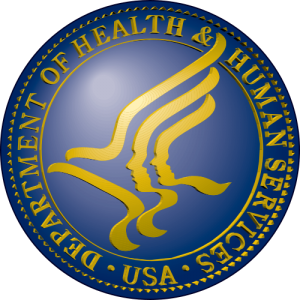
The U.S. Department of Health and Human Services (HHS) presents “Data Privacy in the Digital Age,” a Symposium featuring Latanya Sweeney as a Keynote Speaker and a slate of presenters who are privacy thought leaders from academia, government, and industry. Panelists will discuss privacy concerns on topics ranging from internet-connected devices and electronic medical records to big data analytics and blockchain technology. Attached please find a list of panels and panelists.
REMOTE ACCESS: www.HHS.gov/live
Conference attendees will be drawn from privacy professionals across the Federal government, industry, and academia. Additionally, CIPP-, CIPM-, and CIPT-certified individuals will be eligible to receive up to 6 CPE credits for attending the event.
Seating for the event is limited. The event will be live streamed on www.HHS.gov/live. To register for the “Data Privacy in the Digital Age” Symposium, please email [email protected] with your Name, Institutional Affiliation, Email Address, and preference as to in person or remote attendance (we will try to honor preferences for in person attendance, but cannot guarantee availability).
To obtain further information or request a reasonable accommodation, please email:[email protected].
Panel 1. Contemporary Health Privacy Challenges
Leo Beletsky, JD, MPH; Associate Professor of Law and Health Sciences, School of Law &
Bouvé College of Health Sciences, Northeastern University
Presentation: “From Panacea to Panopticon: Privacy and Prescription Drug Monitoring in the
Age of the Opioid Crisis”
Kate Black, JD; Privacy Officer and Corporate Counsel, 23andMe, Inc.
Zerina Curevac, JD; Associate, Squire Patton Boggs
Presentation: “A Framework for Notice and Choice in Online Consumer Genetics”
Sharona Hoffman, JD, LLM, SJD; Professor of Bioethics; Edgar A. Hahn Professor of Law;
Co-Director, Law-Medicine Center; Case Western Reserve University School of Law
Presentation: “The HIPAA Security Rule: Strengths and Vulnerabilities”
Kathryn Montgomery, PhD; Professor and Director of the Communication Studies Division,
School of Communication, American University
Presentation: “Health Wearables: Ensuring Privacy, Security, and Equity in an Emerging
Internet-of-Things Environment”
Panel 2. Privacy, Data Sharing, and Research
Deven McGraw, JD, LLM; Deputy Director for Health Information Privacy, Office for Civil
Rights; Acting Chief Privacy Officer, Office of the National Coordinator for Health Information
Technology; U.S. Department of Health and Human Services
Presentation: TBD
Kirsten Ostherr, PhD, MPH; Gladys Louise Fox Professor of English; Director, Medical
Futures Lab; Rice University
Presentation: “Trust and Privacy in the Ecosystems of User-generated Health and Medical Data”
Ameet Sarpatwari, JD, PhD; Instructor in Medicine at Harvard Medical School; Assistant
Director, Program On Regulation, Therapeutics, And Law (PORTAL)
Presentation: “Data Sharing that Enables Post-approval Drug and Device Research and Protects
Patient Privacy: Best Practice Recommendations”
Alexandra Wood, JD, MPP; Fellow, Berkman Klein Center for Internet & Society, Harvard
University
Presentation: “Elements of a New Ethical Framework for Big Data Research”
Page 2 of 3
Panel 3. Privacy Policy and Regulation
Idris Adjerid, PhD, MBA; Assistant Professor of Management, Mendoza College of Business,
University of Notre Dame
Presentation: “The Impact of Privacy Regulation and Technology Incentives: The Case of
Health Information Exchanges”
Jason Chung, JD, MSc; Senior Research Scholar, Sports and Society, NYU School of
Professional Studies.
Presentation: “Biometric Data Privacy Problems in Sports: Why the United States Needs a
National Privacy Regulator”
Lindsay Gladysz Madejski, JD, CIPP/G; Associate, Booz Allen Hamilton
Presentation: “Privacy and Security Considerations for Evidence Based Policymaking”
Efthimios Parasidis, JD, MBioethics; Associate Professor of Law and Public Health; Faculty
Affiliate, Center for Bioethics and Medical Humanities; The Ohio State University
Presentation: “Ethical and Legal Dimensions of a Risk-based Rubric for Data Privacy”
Panel 4. From Patient to Participant to Specimen to Data: Privacy Across the
Health Lifecycle
Andrew G. Shuman, MD; Assistant Professor, Division of Head and Neck Oncology,
Department of Otolaryngology–Head & Neck Surgery, University Michigan Health System; Co-
Director, Program in Clinical Ethics; Chair, Adult Ethics Committee and Consultation Service;
Center for Bioethics and Social Sciences in Medicine, University of Michigan Medical School;
Chief, ENT Section, Surgery Service, VA Ann Arbor Healthcare System
Presentation: Focusing on patient privacy
Kayte Spector‐Bagdady, JD, MBioethics; Assistant Professor, Department of Obstetrics &
Gynecology; Chief, Research Ethics Service, Center for Bioethics and Social Sciences in
Medicine; University of Michigan Medical School
Presentation: Dignitary Harms and the Privatization of Data
Nicolle Strand, JD, MBioethics; Assistant Professor, Bioethics; Assistant Director for
Research, Center for Bioethics, Urban Health, and Policy; Lewis Katz School of Medicine at
Temple University
Presentation: Focusing on patient privacy interests in shared data
Page 3 of 3
Panel 5. Privacy-preserving Tools, Technologies, and Methodologies
Adrian Gropper, MD; Chief Technology Officer, Patient Privacy Rights Foundation
Presentation: “Blockchain-linked Self-sovereign Technology for Information Sharing”
Abel Kho, MD, MS; Associate Professor, Northwestern University Feinberg School of
Medicine
Presentation: “Pragmatic Real World Applications of Privacy-preserving Record Linkage”
Bradley Malin, PhD; Professor of Biomedical Informatics, Biostatistics, & Computer Science;
Co-Director, Ph.D. Program in Big Biomedical Data Science; Co-Director, Center for Genetic
Privacy and Identity in Community Settings; Co-Director, Health Data Science Center; Director,
Health Information Privacy Laboratory; Vanderbilt University
Presentation: “An Open Source Tool for Game Theoretic Health Data De-identification”
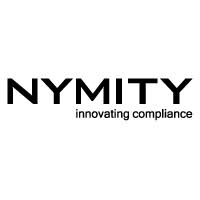
Apart from just showing internally that you are compliant with the law, many companies are also looking for more public ways to confirm that they are meeting their data protection obligations. The GDPR offers various options to do so: adherence to a (sectoral) code of conduct, the development of Binding Corporate Rules or certification.
Article 42 and 43 GDPR allow for the development of certification mechanisms, seals and trust marks to demonstrate compliance with the provisions of the Regulation. In addition, the GDPR offers the possibility to non-EU data controllers, to certify their privacy program to assert they have implemented appropriate safeguards for data protection. This specific certification would allow for data transfers, even when no adequacy decision is in place. Nymity currently has a research project ongoing that looks into the various elements of GDPR certification.
During this webinar, we will look at both past and current certification mechanisms across the world and discuss lessons learned, based on our research project. Next, we will look ahead at what certification mechanisms under the GDPR could look like and why companies should consider to certify their privacy programs or their privacy technology. This will include the question if, and to what extent, Binding Corporate Rules could be regarded as a form of certification. Finally, we will discuss with representatives of the Article 29 Working Party what their guidance on the use of certifications under the GDPR could entail.
Registration Link: https://register.gotowebinar.com/register/4045464301131086849

SmartPrivacy is a practitioner-focused, half day local workshop where privacy professionals can learn from each other about tools and best practices to operationalize their privacy programs.
The workshop is hosted by OneTrust, however, is open to any privacy professional regardless of tool or template of choice.
A combination or structured educational sessions, peer-lead discussions, and networking allow organizations to share practical tips on topics such as GDPR compliance, how to perform a data inventory, identifying the key stakeholders/privacy champions within your organization, and how to get buy-in from executives.
Attendees can expect to receive 4.5 CPE credit hours, the ultimate PIA/DPIA, Data Inventory & Mapping, and Data Subject Rights Handbooks, access to free software tools, how-to guides, and best practices documents on the topics covered.
Workshop Agenda:
• 11:30am Lunch & Registration
• 12:00pm Welcome & Introductions
• 12:30pm PIA & DPIA Workshop
• 2:15pm Data Mapping Workshop
• 3:30pm Data Subject Rights Workshop
• 4:00pm OneTrust Demo
• 4:30pm Networking & Cocktails

